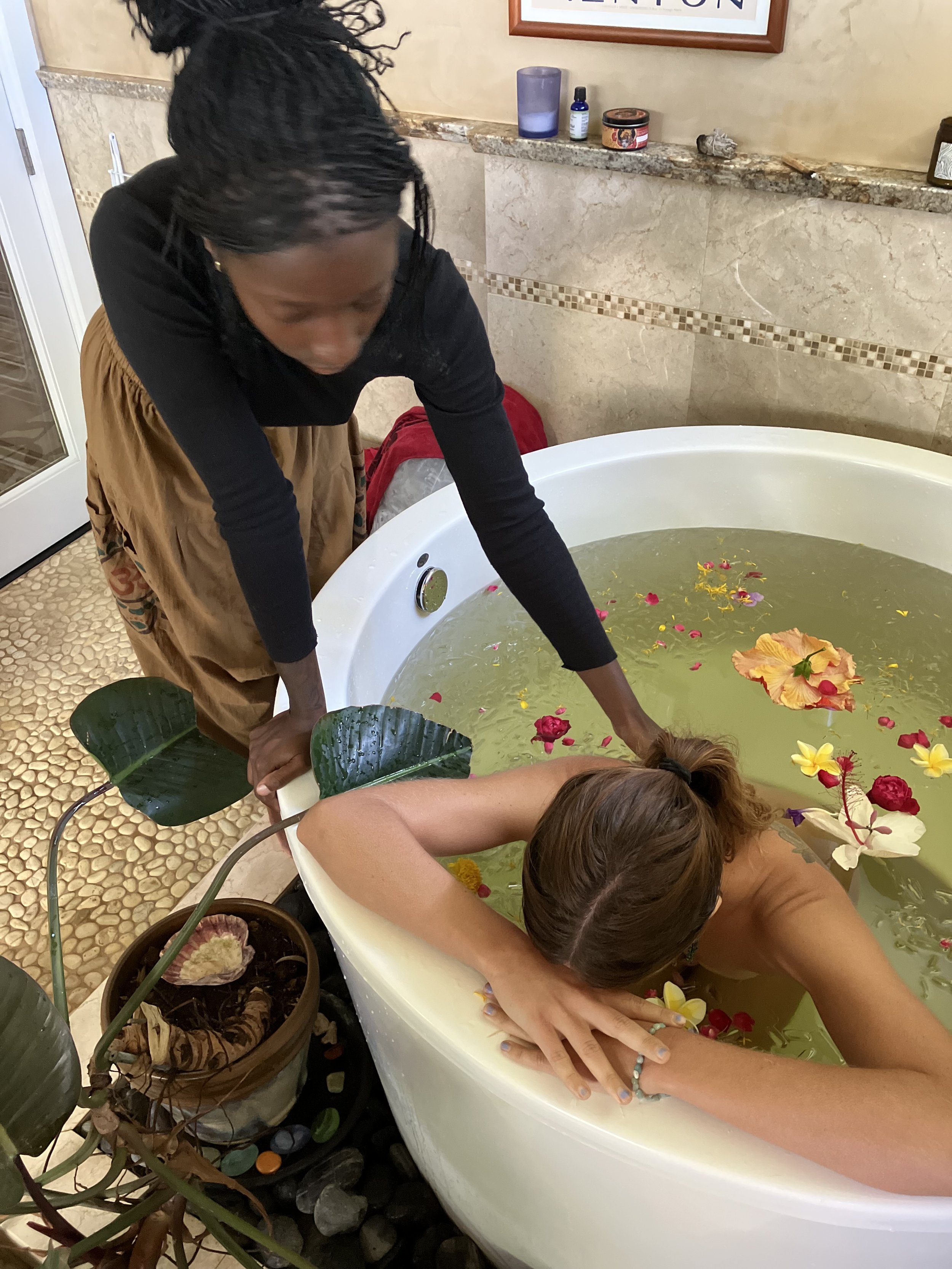What to Expect
Day 1
-
This session will likely focus on effective communication techniques for understanding the families that doulas work with. Every family is unique and communication is a very important skill to grow in order to effectively support the family including their partners, and communicating with healthcare providers. We will practice active listening, paraphrasing, open-ended questioning, and navigating challenging conversations. We start the training here so that we can practice through our time together.
-
This session will delve into a core responsibility of a birth doula. We will discuss our personal opinions, feelings and the ethical considerations involved in supporting the family with their wishes, not ours. Checking our biases before entering a families home and personal world is very important for a healthy doula who knows her boundaries and judgements.
-
We cover pregnancy and birth anatomy and how it can be presented to the birthing family so that they have a greater understanding of the birth process. We cover hormonal changes, anatomical aspects, and different stages of labor and birth as well as the 4 P’s.
-
This is an interactive session that is hands on in order to learn comfort touch, massage, labor positions and using communication, comfort and the ability to hear your clients desires, yes’s and no’s.
-
This is a deep dive into specific medical topics like pain management, interventions, and variations of birth (VBAC, breech presentation, twin deliveries, pain medication, high risk pregnancies, inner-uterine growth restriction, fetal monitoring, and much more.
-
Time to address any lingering questions or topics you'd like further clarification on. Scenario cards are used to begin our process of thinking like a doula and troubleshooting real scenarios that you will come across.
Day 2
-
A midwife, labor and delivery RN or another birth professional will present. Some of the topics we have had in the past trainings include: Optimal Fetal Positioning, Postpartum Support for Families, Spinning babies, How to navigate a hospital, And more
-
It can be very effective to have the right tools in your pocket so to speak and be the most effective one can be as a doula. We will cover the unique tools Bonnie has picked up along the way including the use of a tens unit and keeping a log, diary of the birth for the family.
-
Observe Bonnie conducting a prenatal visit.
Witness the interaction between her as a doula and the mama, and her partner.
Debrief the experience afterward, focusing on communication styles, information gathering, and patient education techniques used during the prenatal.
.
-
Safety Briefing: Trainer outlines safety considerations and potential risks of ice baths. We discuss why practicing the role of a doula is beneficial for the training and using our new skills.
Benefits Discussion: Explore the potential benefits of ice baths for pain management and
Partner Pairing: Trainees pair up with a classmate.
Ice Bath Experience: Each partner takes a turn discovering the unique fears, expectations and comfort/coping skills while their partner provides emotional and physical support.
-
Share experiences and discuss the challenges and benefits of providing support during an uncomfortable experience.
-
Time to address any lingering questions or topics you'd like further clarification on. Scenario cards are used to begin our process of thinking like a doula and troubleshooting real scenarios that you will come across.
Day 3
-
A lactation consultant might present on:
The importance of breastfeeding initiation and latch techniques.
Common breastfeeding challenges and solutions.
How to provide emotional and informational support to new parents navigating breastfeeding while staying in your skill set as a doula.
Interactive session with role-playing scenarios to practice communication and support skills.
-
We will go over:
Developing a business plan and marketing strategy for your doula services.
Setting fees and creating client contracts.
Insurance considerations and legal aspects of being a doula.
Networking and building relationships with birth professionals.
-
Brief review of ice bath safety guidelines.
Partnerships from Day 2 can switch roles, allowing each trainee to experience the ice bath with support.
Debrief and discussion focusing on communication techniques used to provide effective support during the ice bath.
-
Safety first. Lets talk about considerations and potential risks of ice baths. We discuss why practicing the role of a doula is beneficial for the discomfort of this aspect of our training and using our new skills.
Benefits Discussion: Explore the potential benefits of ice baths for pain management.
Partner Pairing: Trainees pair up with a classmate.
Ice Bath Experience: Each partner takes a turn discovering the unique fears, expectations and comfort/coping skills while their partner provides emotional and physical support.
-
This interactive session is focused on:
The emotional challenges of doula work (secondary stress, compassion fatigue).
Self-care strategies for doulas (stress management, maintaining boundaries).
Building a support network among other doulas.
-
Time to address any lingering questions or topics you'd like further clarification on. Scenario cards are used to begin our process of thinking like a doula and troubleshooting real scenarios that you will come across.
-
We will summarize key learnings and outlines expectations for the remainder of the training program, how to find a coach as you create your business and how to become certified if you want to take that path.



